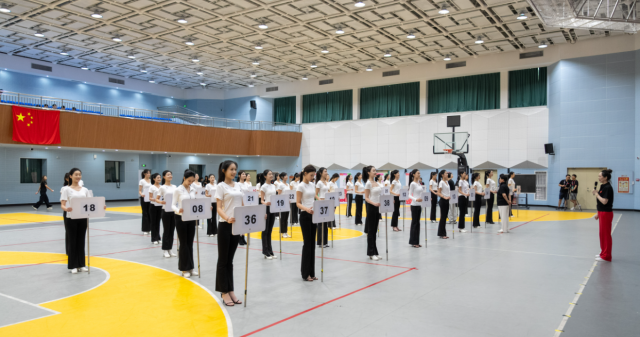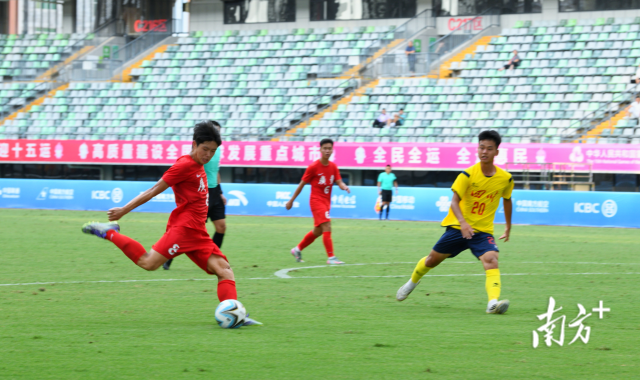« Come on everyone, let’s all join together… » With the dynamic and uplifting melody of « Everyone Join Together, » the footsteps of the 15th National Games draw closer.
Looking down over the Guangdong-Hong Kong-Macao Greater Bay Area, preparations are in full swing: the ticketing platform is live, the first batch of tickets is selling fast, and the enthusiasm of sports fans continues to rise; mass participation events are delivering exciting competitions, with athletes from all walks of life igniting their passion; the opening ceremony rehearsals have entered the on-field stage, with the performers’ condition steadily improving.
On September 20, there were 50 days until the opening ceremony of the 15th National Games. Fifty days later, the National Games flame will ignite the passion across the three regions, and celebratory fireworks will bloom in the skies above.
The three regions are pioneers. This grand event is the first large-scale comprehensive sports event jointly hosted by the three regions, a vivid practice of the « one country, two systems » principle in the field of sports. The three regions are working together to present a wonderful, historic sports spectacle for the nation.
By the South China Sea and the Pearl River, the Greater Bay Area looks forward to joining hands with guests from all corners of the country to perform an impassioned movement together.
Opening Ceremony Enters Final Sprint
Summer turns to autumn, flowers gradually fade, and fruits ripen abundantly.
Preparations for the 15th National Games have entered the « final sprint phase. »
Participating in the opening ceremony performance in the best possible condition is the expectation of opening ceremony performer Deng Junyu.
Behind this expectation lies extraordinary effort. The chief director of the opening ceremony ceremony explained that guides need to carry signs weighing nearly 7 jin (approx. 3.5 kg) while walking inside the stadium and maintain consistent posture; ceremony flag bearers need to dance continuously for over 25 minutes, with formation changes and movement angles precise to specific degrees; flag bearers adhere to « aviation-grade » safety standards, requiring « zero error » in their flag-waving movements. « Repeating a single action over a dozen times is normal, especially in hot weather, which poses a great test to both physical stamina and concentration, » the director said.

« When I’m very tired, I think about how everyone else is working hard, so I can’t fall behind. Together, we will present a perfect opening ceremony for everyone, » Deng Junyu said. Everyone practices extra in their dorm rooms, adjusts their smiles in the mirror, and even analyzes videos frame by frame, striving for perfection.
Presenting a perfect opening ceremony for everyone is the expectation of the executive chief director of the 15th National Games opening ceremony.
On September 1, the first group of performers for the 15th National Games opening ceremony entered the Guangdong Olympic Sports Center for rehearsals. « Entering the venue marks a critical step in the rehearsal process. Next, we will advance full-process rehearsals in stages, striving for every movement to be precise and every lighting effect to be perfect, » the director said.
As the first large-scale comprehensive games jointly hosted by the three regions, the opening ceremony of the 15th National Games is scheduled for November 9 this year. On that day, the national flag will be raised and the national anthem sung simultaneously in Guangzhou, Hong Kong, and Macao.
Currently, all programs have been created, and rehearsal work is progressing orderly in stages. Next, multiple rounds of full-element rehearsals will be conducted, going all out to present an opening ceremony of international standard, Chinese style, Lingnan charm, and Bay Area appeal to the world.
« Our team has already given its all. We will certainly live up to everyone’s expectations and present a successful, perfect opening ceremony, » the director said.
Joining hands for the future, keeping the National Games appointment. The 15th National Games is a major sports event jointly hosted by the three regions and the first time in the history of the National Games that it comes to Hong Kong and Macao.
Carrying the expectations of the people from the three regions, the area is pushing forward all work with high standards, with a sense


